Emergency or Disaster Assistance
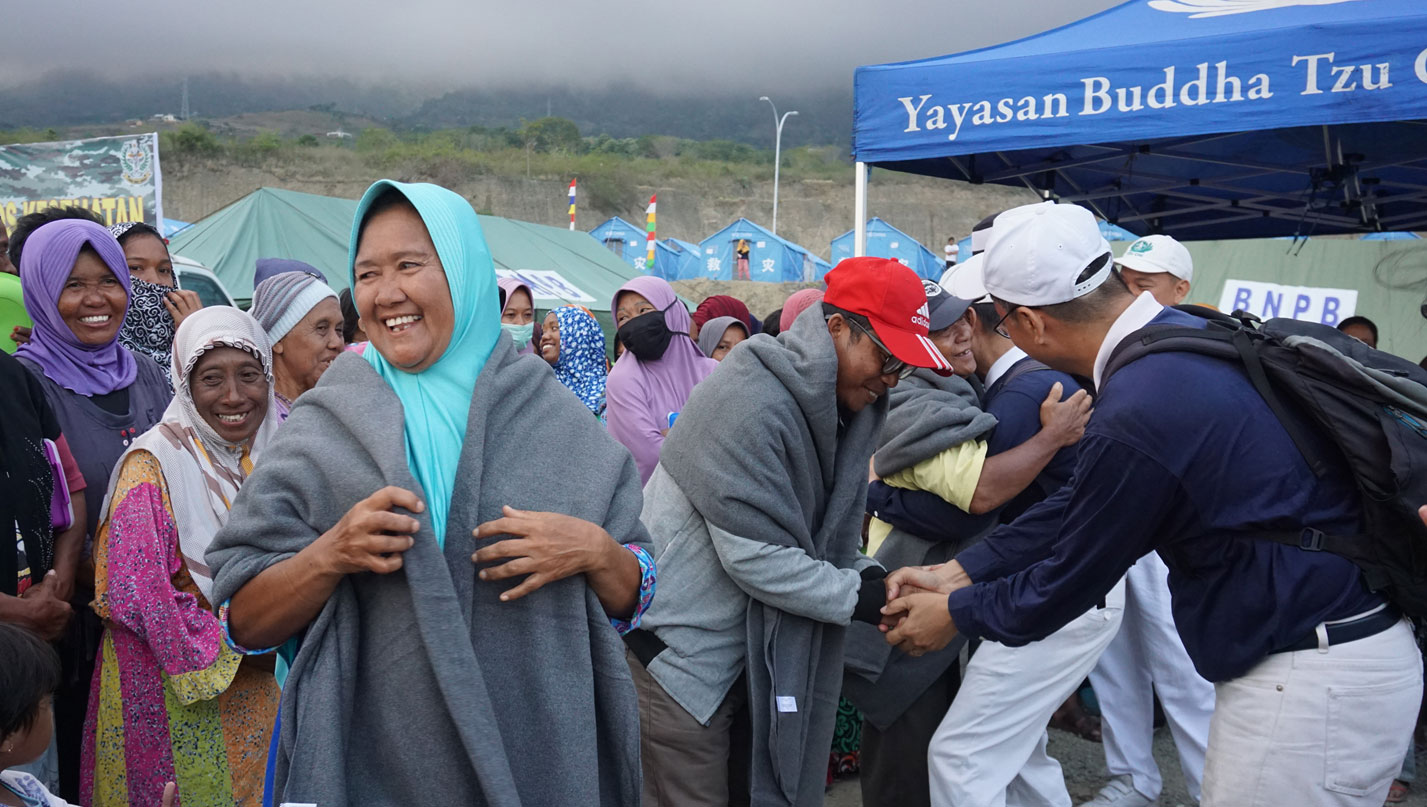
Since its inception, Tzu Chi Indonesia has tried to send aid to disaster-affected areas in various parts of Indonesia. When providing assistance, Tzu Chi people are guided by arriving early and leaving late, not only providing assistance, but also trying to provide solutions and assistance. All of this was done just to see the smile re-engraved on the faces of the victims affected by the disaster.
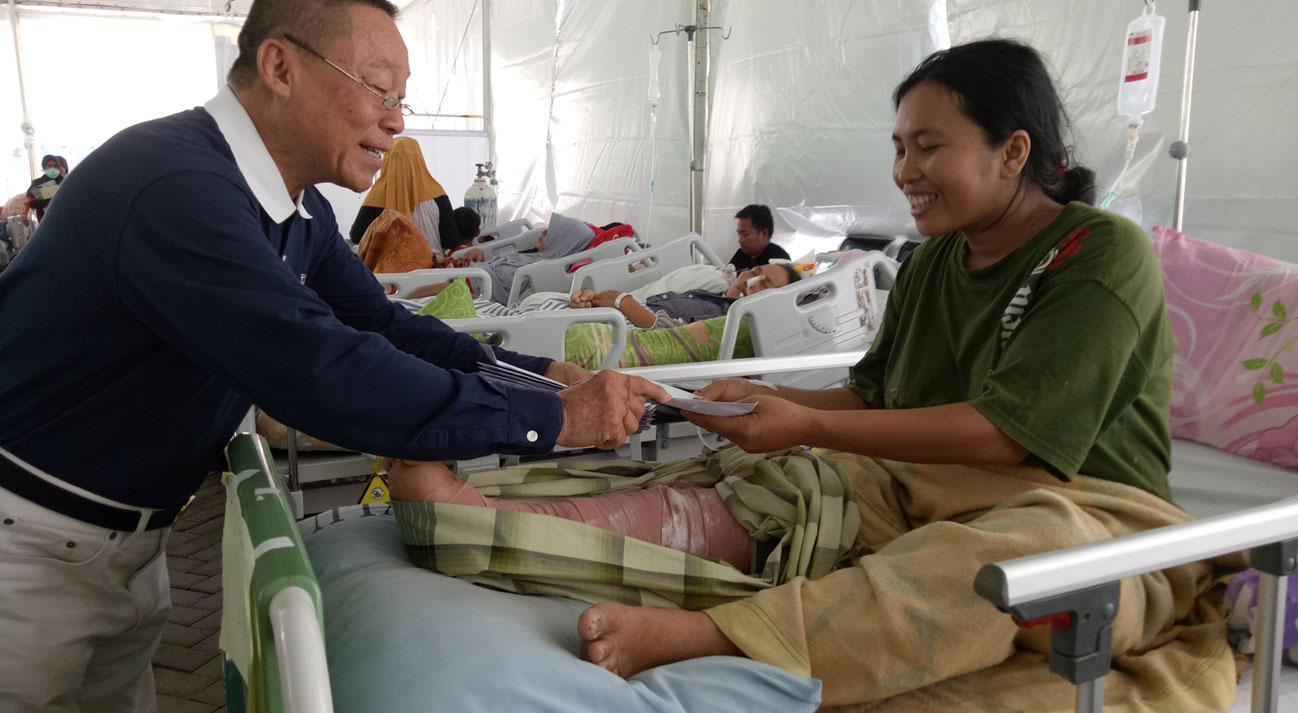
In every disaster relief provision, Tzu Chi adheres to the principles of Direct, Priority, as needed, respectful and fast. The Direct Principle conditions volunteers to interact directly with beneficiaries. The Priority Principle becomes the guideline for volunteers when they have to determine the party to be assisted. Tzu Chi prioritizes helping people who really deserve to be helped and have hopes of changing for the better. While the principle of Respect shows that Tzu Chi views the recipient of the assistance by paying attention to his physical and mental condition.
Tzu Chi Emergency Response Team
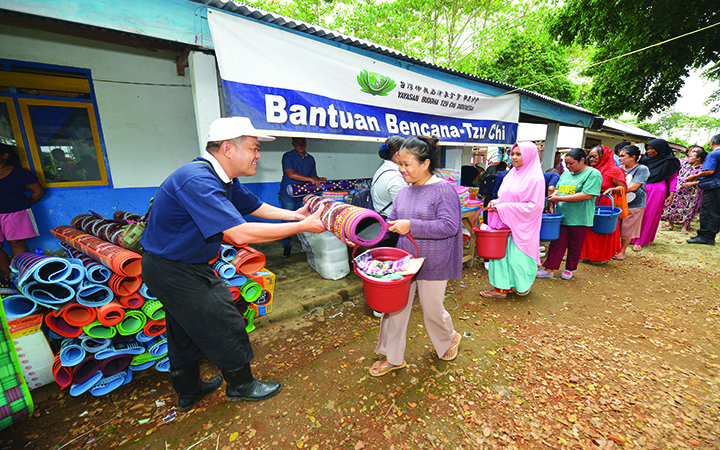
The years following the 2004 tsunami were marked by many disasters that hit Indonesia. At that time more volunteers were needed who were ready and able to go down to the disaster site immediately after the disaster struck. Therefore, the idea arose to form a Tzu Chi Emergency Response Team. Administered by volunteers with experience in disaster relief, the Tzu Chi Emergency Response Team was formed in 2007 and led by Adi Prasetio. With the formation of this team, Tzu Chi strives to be present as soon as possible to help ease the suffering of disaster victims.
When carrying out this noble mission, the volunteers always remember Master Cheng Yen's message to keep each other safe at the disaster site. Therefore, in order to be more skilled and responsive in providing assistance and at the same time maintaining personal safety, an emergency response team training was held on January 6, 2007 at Tzu Chi Love Housing, Cengkareng, West Jakarta. Similar training was held again in order to refresh and improve skills on 17-18 July 2010. On that occasion, the leadership baton of the Emergency Response Team was handed over to Joe Riadi.
Aceh Earthquake and Tsunami
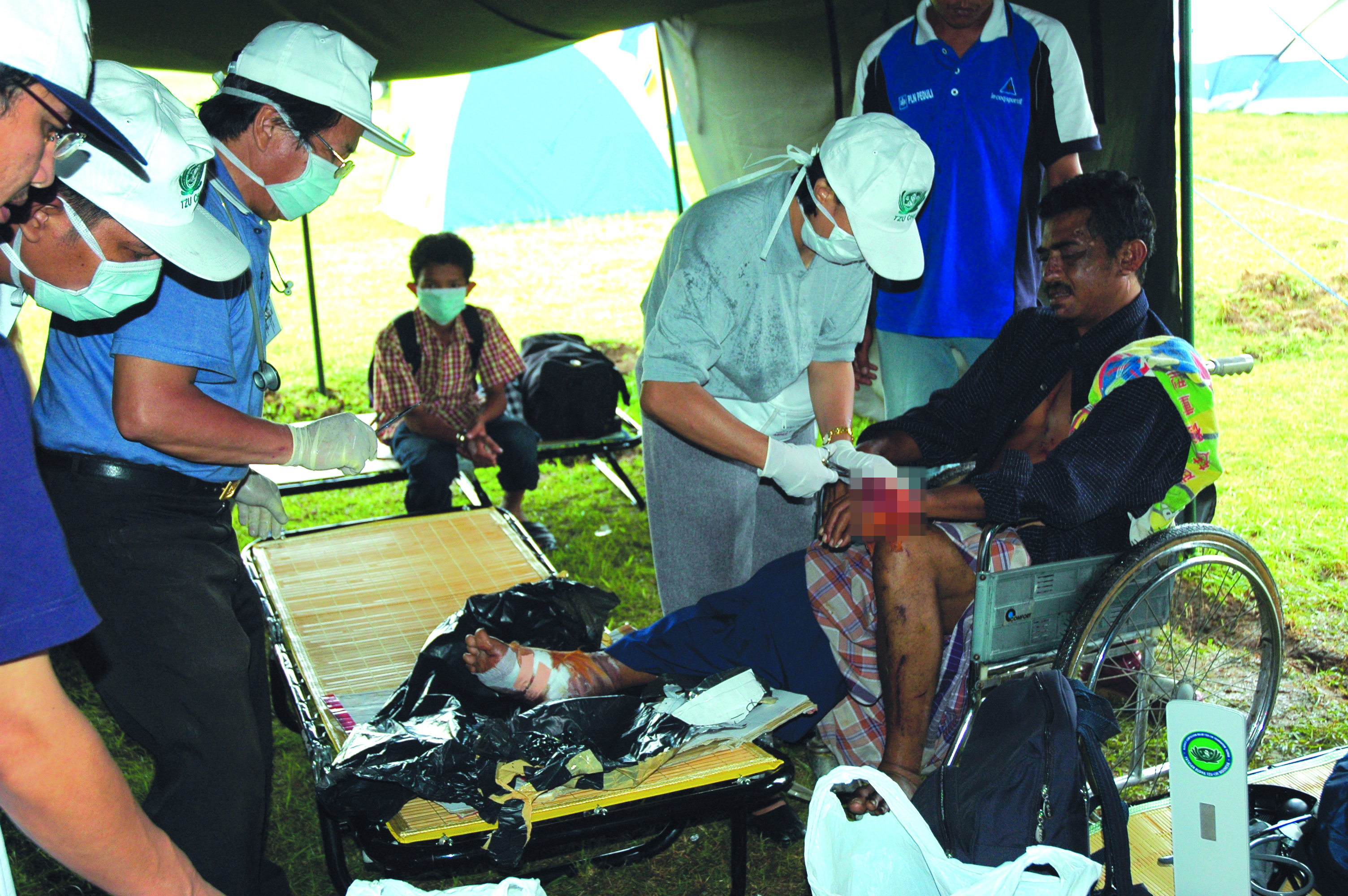
At the end of 2004, an earthquake and tsunami hit Nanggroe Aceh Darussalam and parts of North Sumatra. The disaster that occurred on December 26, 2004 killed hundreds of thousands of people while the survivors had to face the suffering of losing their homes, or losing their families. For this reason, Tzu Chi immediately came to the people of Aceh to provide assistance in the form of 3 stages of assistance: Basic Needs Support, Mentality Support, and Restoring life.
Basic Needs Support
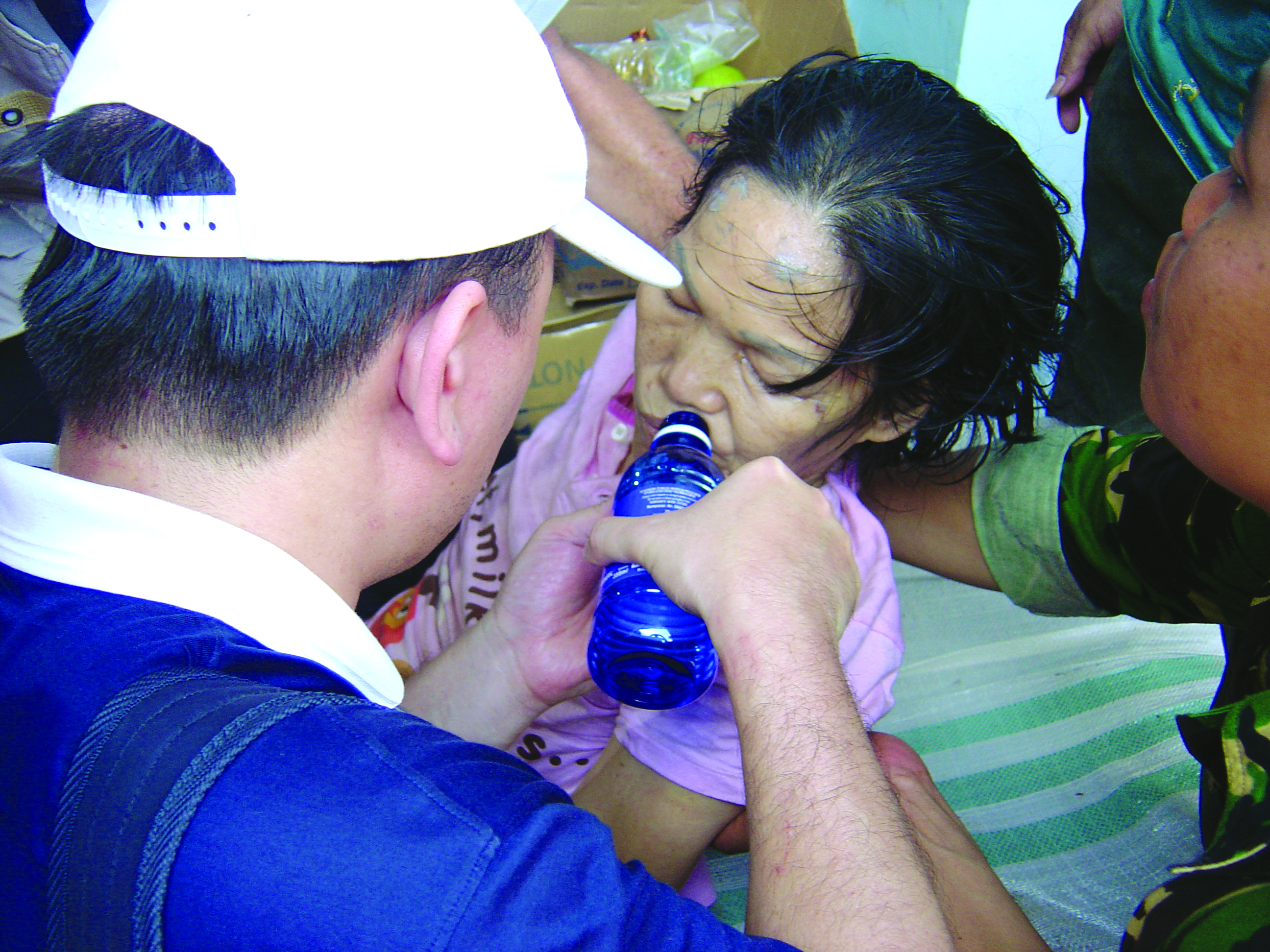
Two days after the disaster, on December 28, 2004, 11 Tzu Chi volunteers arrived in Aceh to conduct a survey of post-disaster conditions. A number of Tzu Chi volunteers along with the TNI went to the scene to distribute basic needs and see the disaster site. The team for disaster management was immediately formed because the situation was very serious and needed a long time to recover. In the initial assistance, Tzu Chi prioritized short-term assistance in the form of distribution of food, medicine, and other basic needs, as well as medical treatment for the refugees.
Mentality Support
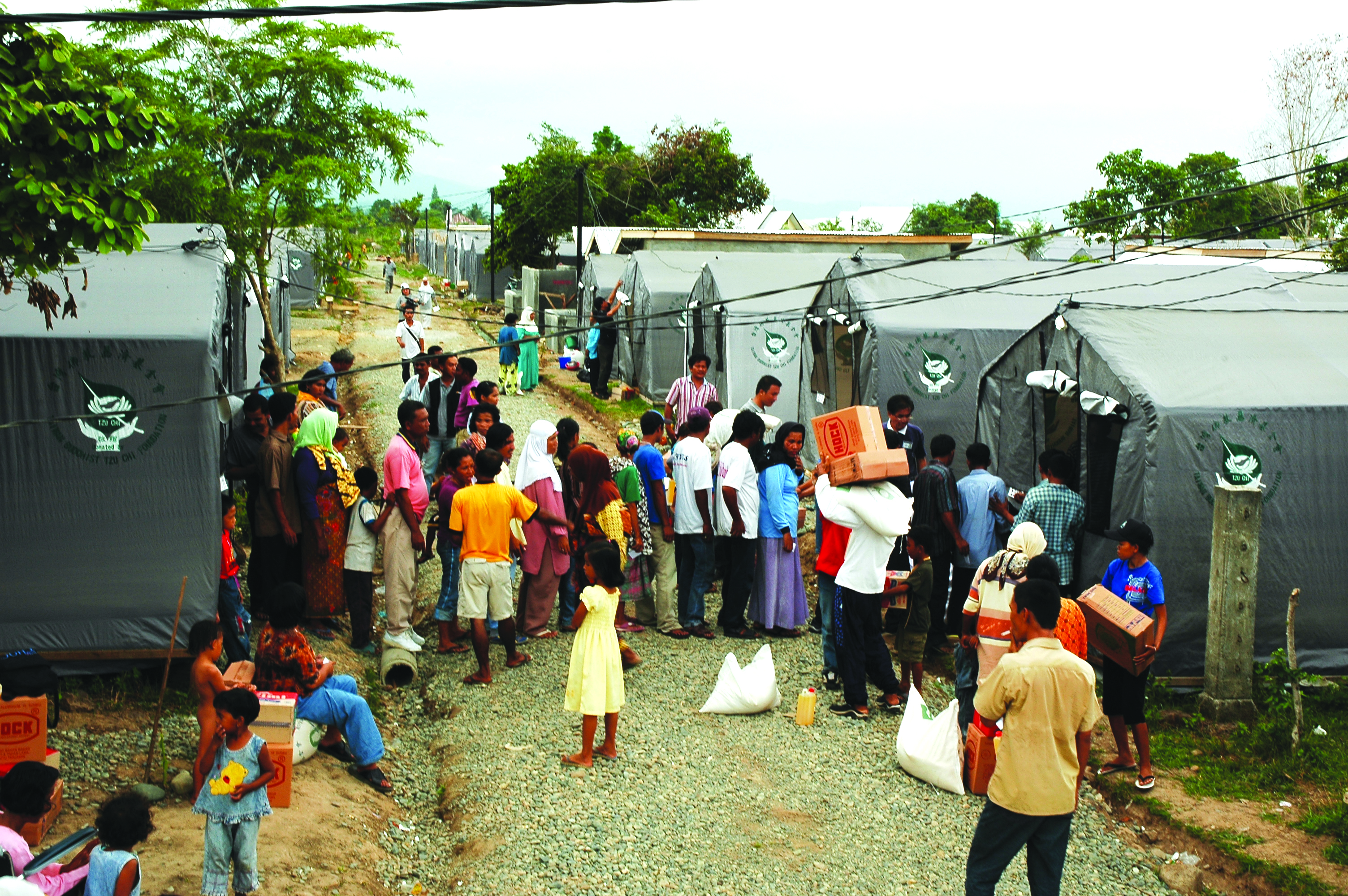
The medium-term assistance program is to provide temporary shelter and provide peace. This was realized by establishing a tent village which began in February 2005, to be used as temporary residences while waiting for the completion of permanent housing construction. In this Tzu Chi tent village, volunteers also reassure the residents by paying attention, nurturing, and uplifting the residents' enthusiasm to rebuild their lives together.
Restoring Life
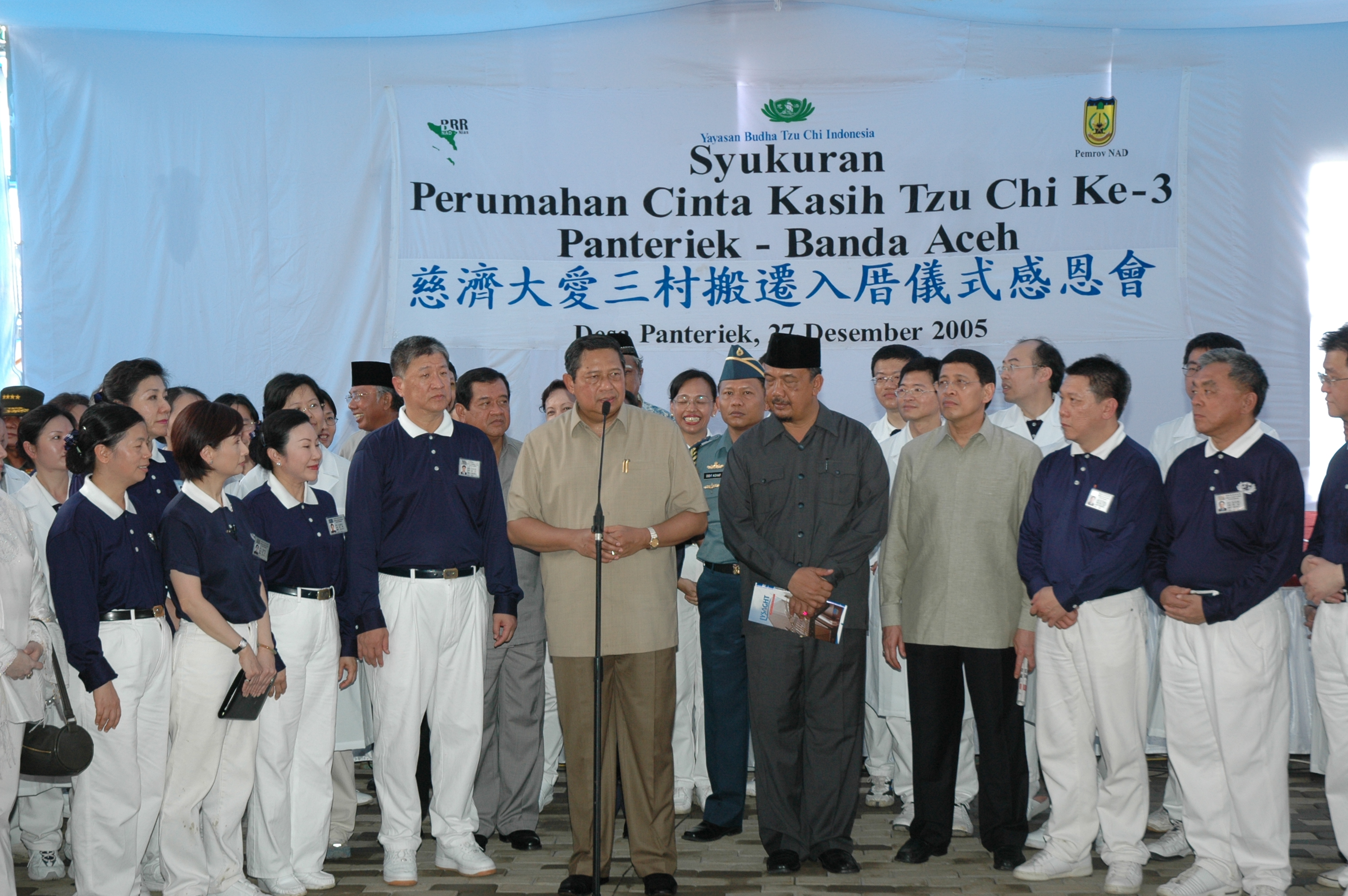
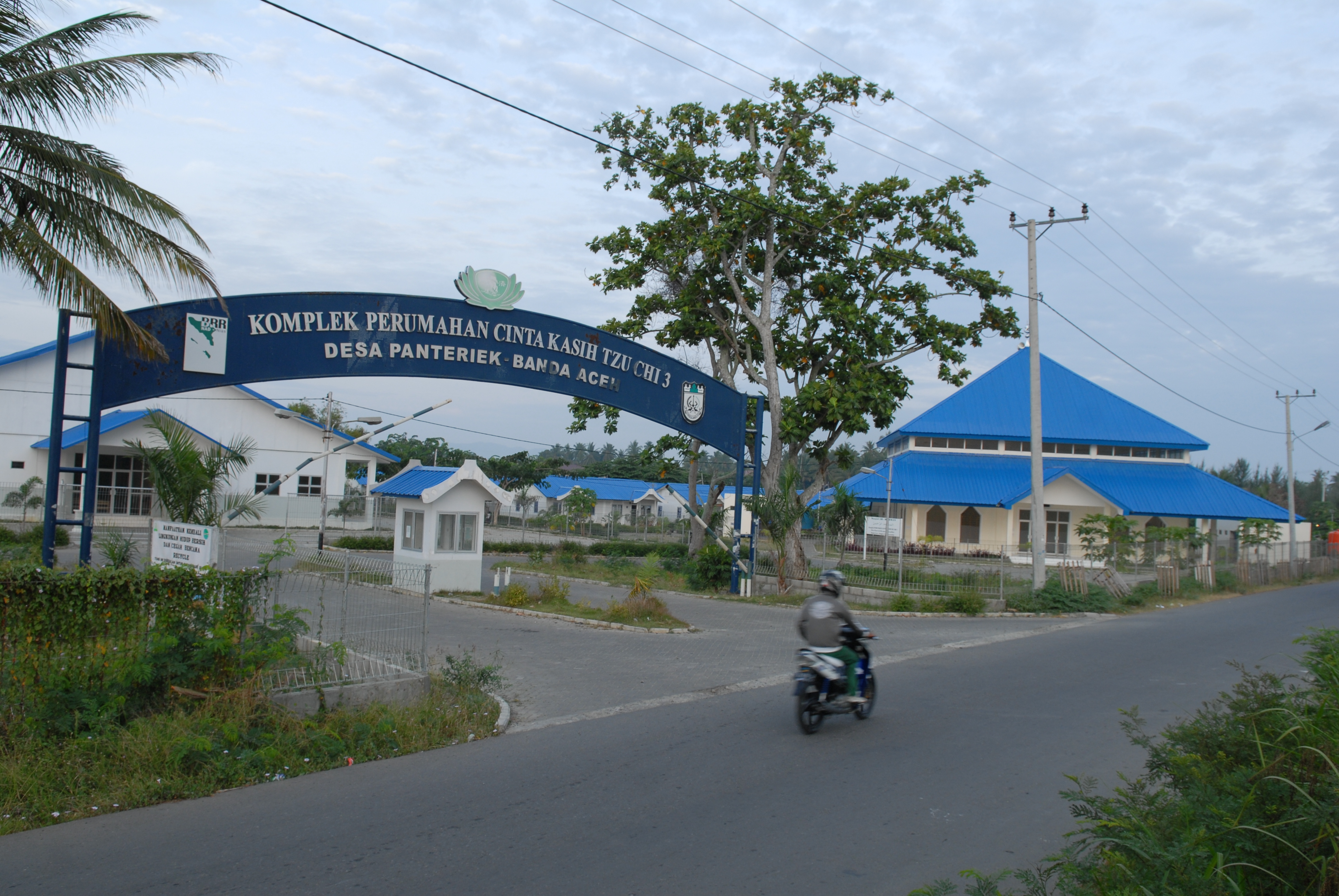
The final stage of assistance provided by Tzu Chi is to build permanent and livable houses. On December 27, 2005, the Tzu Chi Love Housing Complex in Panteriek, Banda Aceh was completed and inaugurated by the President of the Republic of Indonesia, Susilo Bambang Yudhoyono. Residents who previously lived in the Tzu Chi Tent Village are happy to welcome a new life in their new place of residence.








 Sitemap
Sitemap